Early Life and Background of Virgil
Birth and upbringing
Publius Vergilius Maro, better known as Virgil, was born on October 15, 70 BCE, in the quaint region of Mantua in northern Italy. His family’s affluence came from ownership of a modest estate, allowing for a reasonably comfortable rural upbringing. This pastoral backdrop would later heavily influence Virgil’s writing style and thematic focus.
Raised in a time of political turmoil, the late Roman Republic was undergoing significant social and economic shifts. Virgil’s early life was marked by the turmoil that arose from civil wars and power struggles. His family prioritized education, which paved the way for his future literary accomplishments.
- Key points of his upbringing:
- Born in Mantua, Italy.
- Raised in an affluent rural family.
- Influenced by the political unrest of the late Republic.
- Education was a family priority, setting the stage for his future success.
As a young boy, Virgil was likely surrounded by the lush landscapes of rural Italy, which he would later depict in his poetry. The beauty of his surroundings fostered a love for nature and simplicity, themes that resonate throughout his works.

Education and literary influences
From a young age, Virgil displayed an innate talent for poetry and literature, traits nurtured by his family’s encouragement to pursue his education. He attended schools in Cremona and Milan, where he was introduced to the works of great Greek and Roman poets. His education ultimately took him to Rome and later to Naples, where he immersed himself in philosophical thought and the arts.
- Influential figures in Virgil’s education:
- Teachers and Peers: Virgil interacted with several prominent teachers and intellectuals, exposing him to a range of literary styles and philosophical ideas.
- Literary Influences: The epic poetry of Homer and the works of earlier Roman authors such as Ennius shaped Virgil’s early poetic voice.
Virgil was particularly inspired by the pastoral genre, as seen in the works of Theocritus, a Greek poet whose idyllic depictions of rural life mirrored aspects of Virgil’s own experiences. This influence is evident in his early work, the Eclogues, where he captures the joys and sorrows of country living.
In addition to these literary influences, Virgil’s education also encompassed significant philosophical teachings. He studied Stoicism and Epicureanism, philosophies that would inform his writings and the moral complexities present in his later works.
- Key aspects of Virgil’s education:
- Transition from his rural roots to urban intellectual life.
- Encounter with various philosophical schools of thought.
- Deep appreciation for both Greek and Roman literary traditions.
Virgil’s ability to blend his personal observations with learned literary forms allowed him to develop a unique voice in poetry, one that would resonate profoundly with readers over millennia. His early life, enriched by a blend of pastoral beauty and profound literary influences, set the foundation for his future contributions to literature, notably encapsulated in his crowning achievement, The Aeneid.
As we delve deeper into Virgil’s literary achievements and the context of his works, it becomes increasingly clear how his nascent years shaped him into one of the most celebrated poets in Western literature. The cultural fabric of his early life provided not only the inspiration but also the philosophical depth that would mark his later masterpieces.
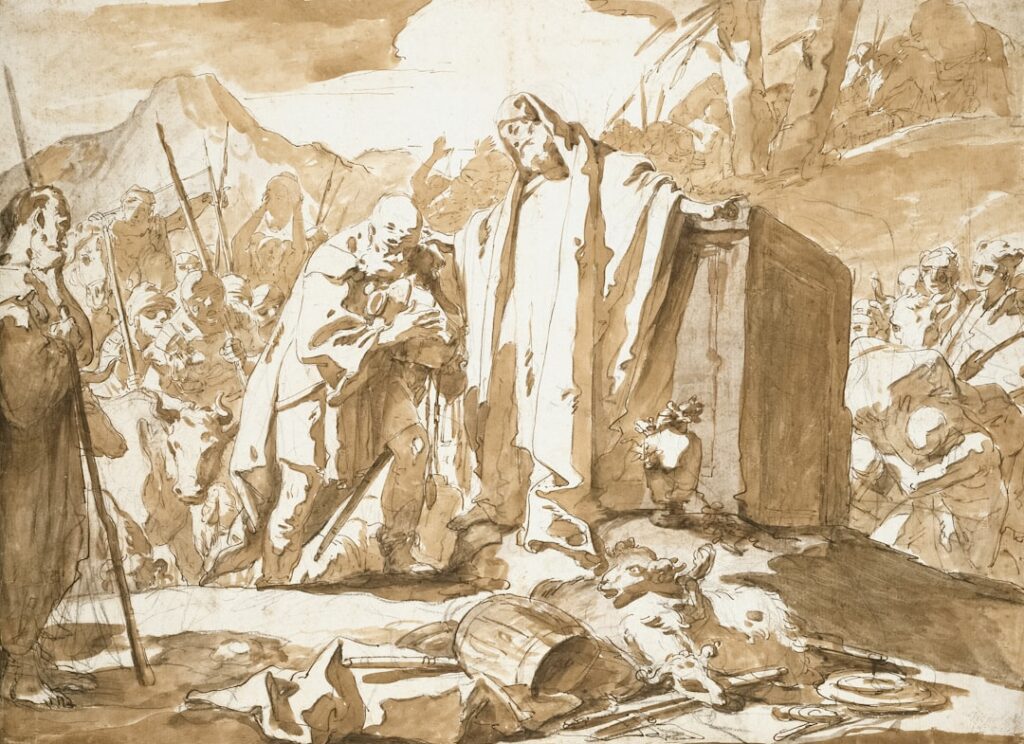
Virgil’s Works Before The Aeneid
Following the foundational era of Virgil’s early life and education, it’s essential to explore the works he crafted before achieving monumental success with The Aeneid. Two significant collections stand out during this formative period in his literary career: the Eclogues and the Georgics. Each demonstrates his evolution as a poet and introduces themes that would resonate across his later work.
Pastoral poetry: Eclogues
Virgil’s Eclogues, composed around 42 to 39 BCE, encapsulate the essence of pastoral poetry, glorifying the simplicity and beauty of rural life while also conveying the poet’s emotional depth and engagement with contemporary issues.
These ten short poems present a conversation among shepherds, emphasizing nature, love, and the idyllic serenity of the countryside. Heavily influenced by Theocritus, Virgil takes this Greek pastoral tradition and infuses it with distinctly Roman sensibilities.
- Themes and Characteristics of the Eclogues:
- Nature as a Backdrop: The pastoral landscape is not merely a setting but a character that reflects human emotions.
- Emotional Depth: The poems explore issues such as love, loss, and longing, often embodied in dialogues between the shepherds.
- Political Commentary: Subtle references to the political turmoil of Virgil’s time, particularly the struggles stemming from civil war, reflect a deeper societal concern.
- Personal Experience: Virgil channels his own experiences of rural life, allowing readers to connect intimately with the emotions expressed.
One of the most famous pieces, Eclogue 10, showcases a shepherd’s lament for his lost love, serving as a poignant reminder of how personal sorrow can be amplified against the backdrop of nature. The accessibility and emotive quality of the Eclogues quickly established Virgil as a significant voice in Roman literature.
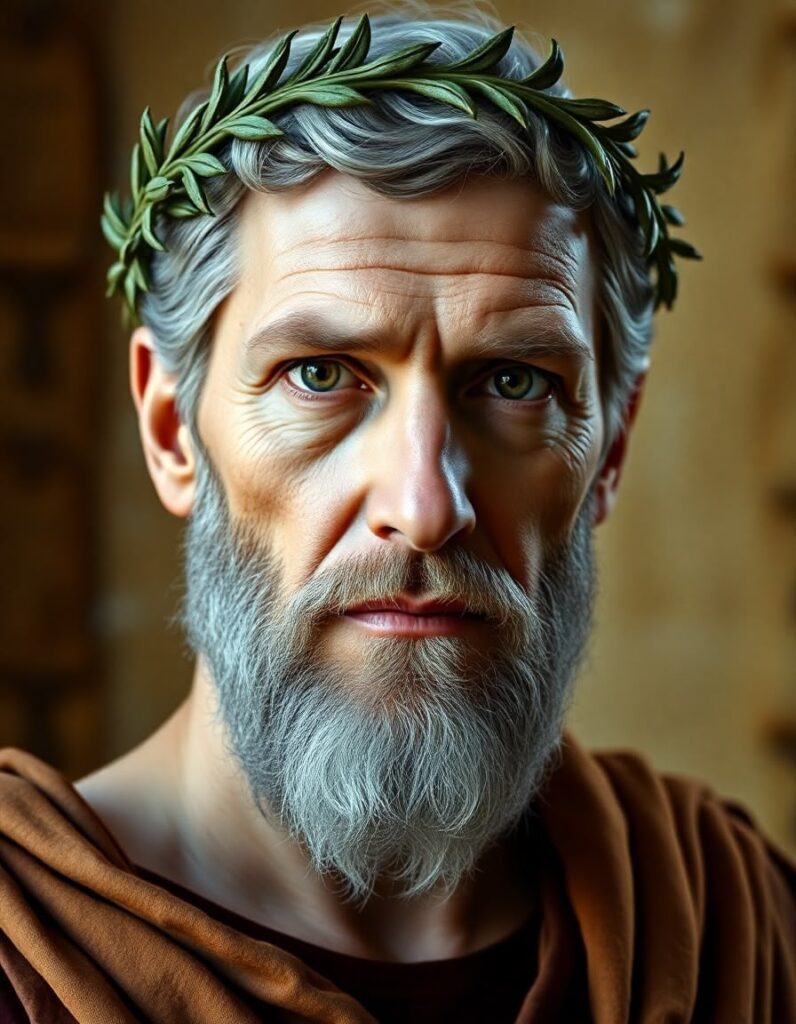
Didactic poetry: The Georgics
Next in the timeline of Virgil’s literary journey is the Georgics, published between 37 and 30 BCE. This work diverges from the purely pastoral themes of the Eclogues, positioning itself as a comprehensive agricultural manual infused with poetic elegance.
While it might seem practical on the surface, the Georgics delves much deeper, exploring human existence within the agricultural sphere and emphasizing the connections between nature, labor, and the divine.
- Major Components of the Georgics:
- Four Books: Each book focuses on a specific aspect of agriculture—cultivation of crops, care of trees, animal husbandry, and the harmonious relationship between humans and nature.
- Philosophical Undertones: Reflecting Stoic ideologies, Virgil emphasizes the value of hard work and the virtuous life, framing agriculture not just as a physical endeavor but a philosophical one.
- Symbolism of Labor: The labor of farming symbolizes broader life struggles, resonating with readers seeking purpose and resilience amid life’s challenges.
The Georgics also showcase Virgil’s lush and evocative language, creating vivid imagery that brings the agricultural practices to life. For instance, his descriptions of the seasons, planting, and harvest are imbued with a rich sense of appreciation for nature’s cycles, illustrating how work is not just a necessity but an art form in itself.
It is within the Georgics that Virgil maturely merges aesthetics and practicality, demonstrating a Roman’s affinity for agriculture, while also addressing the broader implications of humanity’s relationship with the environment.
As we transition to discuss The Aeneid, it becomes clear that both the Eclogues and the Georgics laid the groundwork for the epic’s exploration of duty, identity, and the interplay between the personal and the political. The nuanced themes and techniques that Virgil developed in these earlier works would shape his approach to epic poetry, paving the way for his later triumphs.
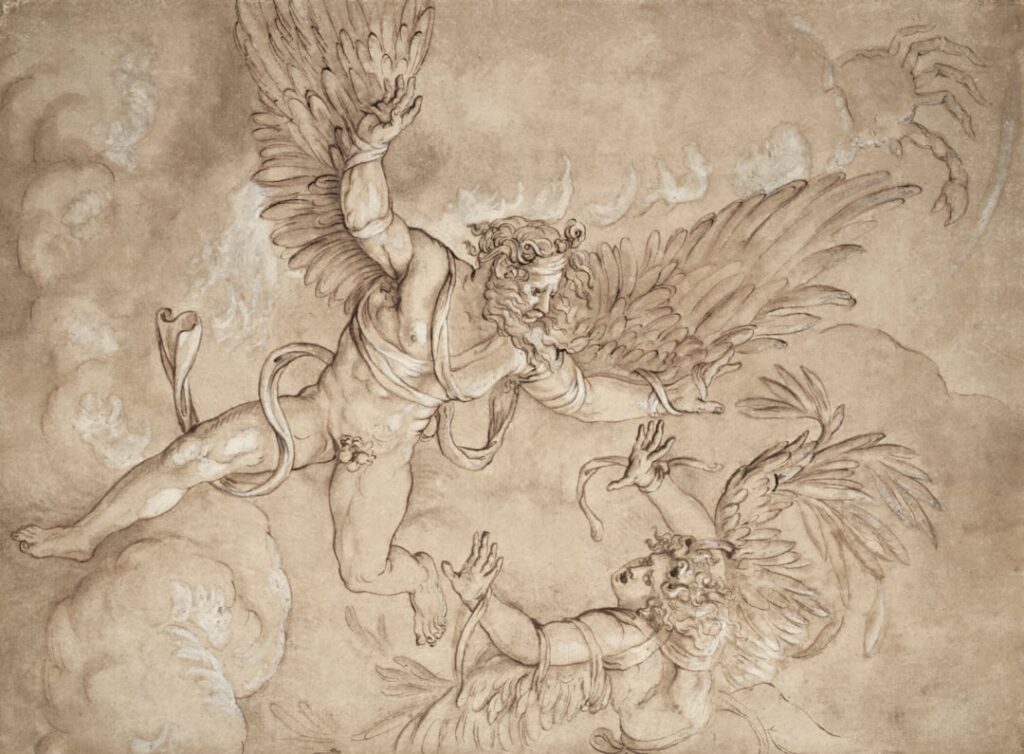
The Aeneid: Themes and Characters
Transitioning from Virgil’s earlier works, we arrive at his magnum opus, The Aeneid, an epic poem that not only showcases his literary prowess but also weaves complex characters and profound themes into a gripping narrative. Written between 29 and 19 BCE, this work serves as a cornerstone of Roman literature, exploring the very essence of duty, fate, and human emotion.
Overview of the epic poem
The Aeneid narrates the journey of Aeneas, a Trojan hero, as he flees the burning city of Troy and eventually finds his destined home in Italy. Comprising twelve books, the poem is rich with mythological elements, invoking the muses to inspire its tale.
Virgil’s story unfolds in a blend of lyricism and dramatic action. Aeneas faces fierce storms, divine intervention, and personal sacrifices, ultimately culminating in his role as the ancestor of the Romans.
- Key Features of the Epic:
- Structure and Style: The poem is divided into twelve books, following the conventions of epic poetry with a narrative style characterized by elevated language and meter.
- Divine Influences: The gods play crucial roles throughout the narrative. Jupiter, Venus, and Juno influence events significantly, shaping Aeneas’s fate.
- Cultural Foundation: The Aeneid serves as a nationalistic epic, legitimizing Rome’s imperial destiny and the divine support behind its founding.
With its grand themes and legendary characters, The Aeneid transcends mere storytelling, reflecting Rome’s values, history, and aspirations.
Analysis of major themes
The depth of The Aeneid extends beyond its plot; it introduces various themes that resonate with its audience through issues of fate, duty, and the human experience.
- Fate vs. Free Will: A central theme is the tension between destiny and individual choice. Aeneas is repeatedly called by fate to establish a new homeland, leading to internal conflicts as he weighs his desires against his obligations.
- Pietas (Piety and Duty): Aeneas embodies the Roman virtue of pietas, epitomizing loyalty to the gods, family, and country. His decisions often reflect the sacrifices demanded by duty, contrasting with personal desires.
- The Role of Women: Female characters, especially Dido, represent both strength and vulnerability. Their interactions with Aeneas highlight themes of love, betrayal, and the societal roles of women in ancient Rome.
- War and Peace: The epic delves into the duality of conflict — Aeneas’s journey is fraught with battles, yet it ultimately aims for peace and prosperity for his descendants.
Through these themes, Virgil addresses universal human struggles, making the narrative relatable while cultivating a sense of pride in Roman identity.
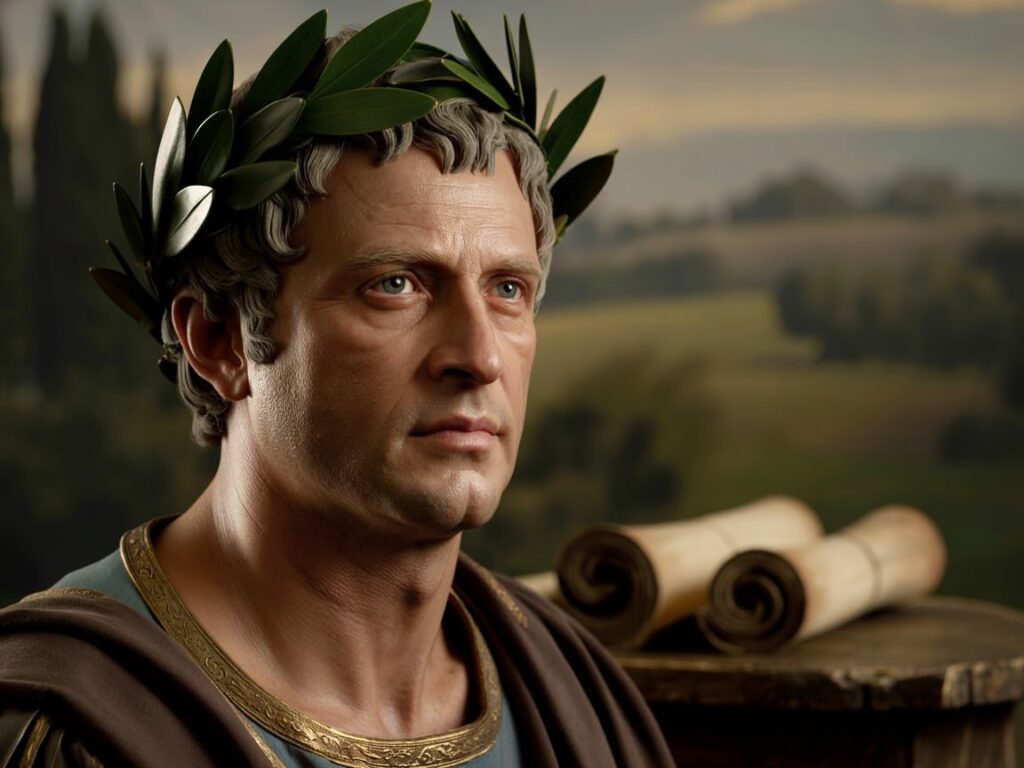
Character exploration: Aeneas, Dido, and more
Central to The Aeneid is the multifaceted character of Aeneas. As a leader and warrior, he possesses qualities that reflect both human and divine attributes.
- Aeneas:
- Aeneas’s dual nature as a hero and a reluctant leader adds depth to his character. His inner conflicts often highlight his struggles with personal desires versus the greater good.
Next, we have Dido, the Queen of Carthage, whose tragic love story captures readers’ hearts:
- Dido:
- Dido experiences profound love for Aeneas, symbolizing passion and tragic fate. Her eventual despair when abandoned reveals the cost of Aeneas’s duty and the complexities of love.
Other characters, such as Turnus, the primary antagonist, serve to deepen the narrative conflict:
- Turnus:
- Fierce and proud, Turnus embodies the spirit of resistance against fate, resisting Aeneas’s destiny while highlighting the theme of honor in conflict.
Virgil’s character development achieves a delicate balance between individual motivations and larger thematic currents, creating a richly woven tapestry of human experience that resonates beyond its historical context.
As we conclude this exploration of The Aeneid, it becomes clear that Virgil’s masterful narration not only tells the story of Aeneas but also encapsulates the essence of the Roman experience, melding personal sacrifice with a collective identity that would echo through ages.
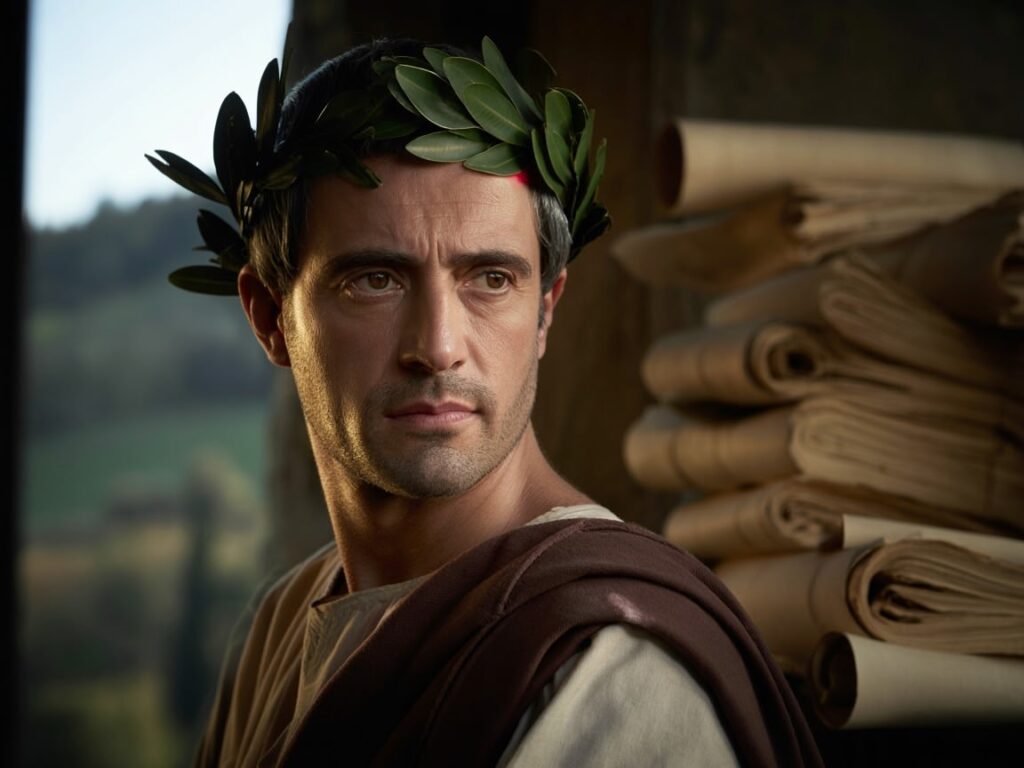
Literary Influence and Legacy of The Aeneid
As we navigate the profound depths of The Aeneid, it’s impossible to overlook the monumental impact this epic has had on both Roman literature and, more broadly, the Western literary tradition. Written in a time when Rome was solidifying its identity, Virgil’s masterpiece not only reflects but actively shapes cultural narratives that resonate even today.
Impact on Roman literature
Virgil’s Aeneid stands as a monumental pillar in Roman literature, hailed as the national epic that perfectly encapsulates the values and aspirations of Roman society. Following its publication, the poem influenced numerous poets and writers within the Roman canon, establishing a template for epic storytelling characterized by grand themes and moral complexities.
- Key impacts on Roman literature include:
- Establishment of Epic Form: The Aeneid set a high standard for epic poetry, inspiring subsequent Roman poets such as Lucan and Statius to engage with its structure and themes.
- Integration of Myth and History: Virgil’s blending of mythological motifs with Roman history forged a new cultural identity, allowing for a sense of continuity between divine influences and historical events.
- Influence on Satire and Lyric Poetry: The stylistic techniques employed by Virgil also influenced genres outside of epics, as poets began to adopt his dramatic language and rhetorical flair in their own works.
Virgil’s emphasis on themes like duty, destiny, and emotional depth opened the door for other writers to delve into complex human experiences. His work encouraged the exploration of personal and public challenges, enriching Roman literary discourse.
Influence on Western literature and culture
The legacy of The Aeneid extends far beyond the borders of ancient Rome, profoundly impacting the trajectory of Western literature and culture. Subsequent writers, artists, and philosophers drew from Virgil’s narrative and thematic richness, embedding his influence within the fabric of Western thought.
- Significant influences on Western culture include:
- Imitation and Adaptation: Authors such as Dante and Milton were inspired by Virgil, with Dante famously featuring him as a guide in The Divine Comedy. Milton’s writing in Paradise Lost also reflects the grandeur and moral complexity found in The Aeneid.
- Literary Themes: The exploration of fate, duty, and the human condition, as presented by Virgil, became foundational themes for later writers. The contemplation of individual versus societal obligations remains relevant in modern literature and storytelling.
- Artistic Interpretation: The epic has inspired countless artistic works, from Renaissance paintings to modern adaptations in films and theatrical productions. Artists have sought to capture the epic’s emotional weight, contributing to a lasting visual interpretation of Aeneas’s journey.
Virgil’s vivid characterizations and eloquent depictions of the human experience serve as a touchstone for countless creative endeavors. Through its exploration of love, loss, and the quest for identity, The Aeneid continues to resonate with audiences, encouraging reflection on timeless themes.
- Real-World Applications:
- Many modern educators use The Aeneid to discuss themes of civic duty and personal integrity, allowing students to draw connections between historical narratives and contemporary ethical dilemmas.
- The story can serve as a lens through which to examine today’s world leaders’ responsibilities, further cementing its relevance in current discourse.
As we explore the layers of influence that The Aeneid has woven through the tapestry of literature and culture, it becomes evident that Virgil’s work transcends its historical context. It provides a rich framework for understanding the human condition, inspiring generations of thinkers, writers, and artists across time.
In conclusion, the literary influence and legacy of The Aeneid profoundly impact both the Roman literary tradition and global culture. With its ability to speak to fundamental human experiences and societal challenges, Virgil’s epic remains a beacon of creative inspiration and moral contemplation.
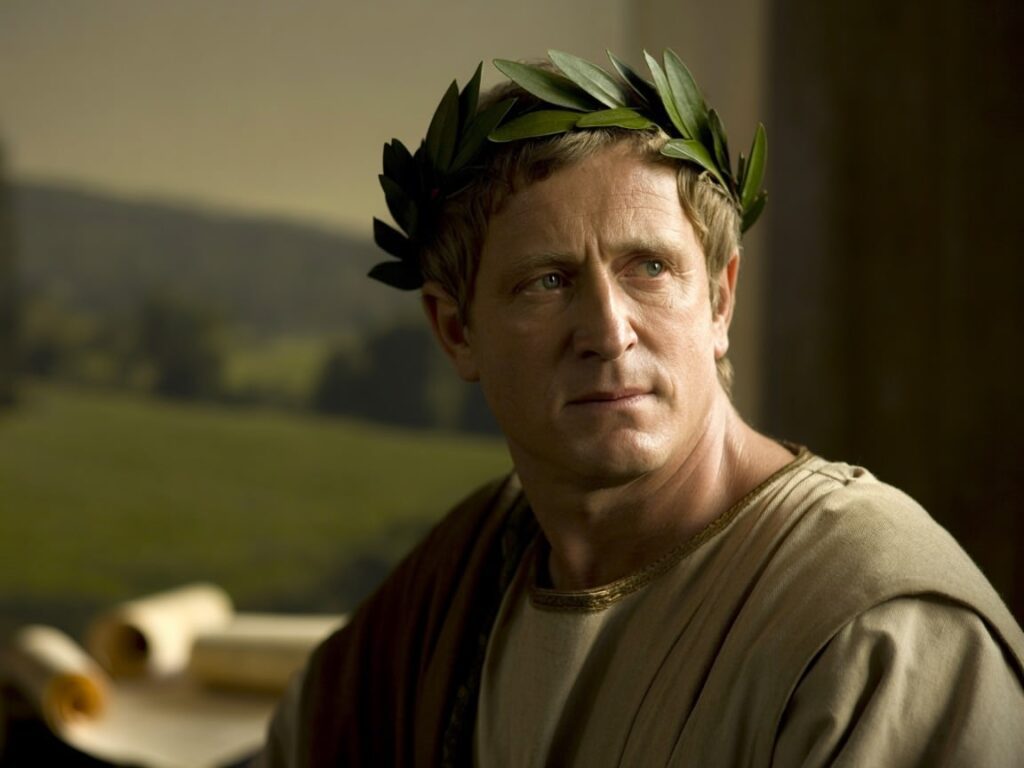
The Controversies Surrounding Virgil
As we venture further into the legacy of Virgil and The Aeneid, it becomes essential to address the controversies that have surrounded this epic and its author. The complexity of Virgil’s political connections, coupled with the interpretation of his work, invites deeper scrutiny and discussion among scholars, poets, and readers alike.
Political connections and implications in The Aeneid
At its core, The Aeneid is not merely a narrative about a hero’s journey; it is also a reflection of the political climate in which Virgil lived. Written during the rule of Augustus, the first Roman Emperor, the poem carries profound political implications, as Virgil sought to align his work with the values of the new regime.
- Key political elements in The Aeneid:
- Propaganda for Augustus: Virgil’s epic serves as an endorsement of Augustus’s leadership, portraying Aeneas as an ideal Roman hero who embodies the virtues endorsed by the Augustus regime—courage, piety, and a sense of duty to the state.
- Reflections on Roman Identity: The poem navigates the themes of imperial destiny and national pride, presenting Rome’s foundation as divinely sanctioned, which further legitimizes Augustus’s authority.
- Critique of Civil Conflict: The backdrop of civil war is ever-present in The Aeneid. While the poem promotes order and unity, it also subtly critiques the consequences of division, echoing the struggles that shaped Virgil’s world.
Virgil’s connections to Augustus and other political figures of the time invite a myriad of interpretations surrounding his work, raising questions about artistic freedom versus obligation to power. Some argue that this intertwining with imperial politics diluted the art’s authenticity, while others celebrate it as a strategic maneuver that ensured the poem’s survival and relevance.
Alleged symbolism and hidden meanings in the text
Beyond the blatant political connections, The Aeneid abounds with symbolism and layers of meaning that continue to captivate scholars and literary enthusiasts. Many readers look for hidden messages, philosophical reflections, and symbolic representations that provide deeper insights into the human experience.
- Key areas of symbolism in The Aeneid:
- Aeneas as a Symbol: Aeneas’s journey symbolizes more than just the founding of a new city; it serves as an exploration of individual purpose against the backdrop of a greater collective destiny. His struggles reflect the complexities of the human spirit facing external challenges.
- The Journey Motif: The physical journey of Aeneas is symbolic of internal growth and the search for identity. This ever-relevant motif resonates with readers who navigate their own life journeys.
- Divine Intervention: The gods represent not only divine power but also the unpredictability of fate. Each character’s interaction with divine forces reflects the relationship between humanity and the larger cosmos, prompting contemplation on the nature of control and circumstance.
Furthermore, the characters and situations in The Aeneid are layered with meaning. The tragic love story between Aeneas and Dido, for example, has been interpreted as a cautionary tale regarding the conflicts between personal desire and duty—a dichotomy that remains relatable today.
The intricacies of symbolism in Virgil’s work lead to debates about authorial intent. Some scholars argue that Virgil deliberately embedded these layers to provoke discussion, while others view them as unintentional byproducts of rich storytelling.
As we explore the controversies surrounding Virgil and The Aeneid, it becomes evident that his work is a tapestry woven from personal, cultural, and political threads. The interplay between duty, identity, and the search for meaning reflects not only the concerns of Virgil’s time but also the timelessness of human experience.
Ultimately, whether seen through a political lens or a literary one, Virgil’s legacy continues to stimulate dialogue, inviting readers to unpack the complexities of The Aeneid. This epic does not simply recount events; it challenges us to reflect on our own existence, duty to society, and the intertwined nature of individual and collective destinies.
Critical Reception of Virgil and The Aeneid
Having explored the myriad controversies surrounding Virgil and his epic masterpiece, The Aeneid, it’s essential to examine how this monumental work has been received and interpreted over the centuries. From its initial reception during Virgil’s lifetime to the modern scholarly discourse, the journey of The Aeneid reflects changing cultural values and critical perspectives.
Contemporary reviews and interpretations
When The Aeneid was first presented to the public, it was met with a range of reactions, ultimately cementing Virgil’s reputation as a leading poet of his time. Written partly as a means to legitimize the Augustan state, the epic found its place in the heart of Roman society as both a narrative of national pride and a complex commentary on human emotion.
- Initial reception highlights:
- Praise and Recognition: The poem was well-received by both the political elite and the general populace, with many lauding Virgil’s ability to intertwine myth with Roman history, offering a sense of cultural significance and cohesion in a post-civil war nation.
- Variants of Interpretation: While some viewed it as a work of propaganda, others appreciated its artistic merit and emotional depth. Critical perspectives varied based on social and political standing—some expressed admiration for the representation of piety and duty, while others critiqued perceived moral ambiguities.
- Personal Reflection: Virgil’s contemporary, Horace, famously referred to him as “the prince of poets,” suggesting a strong endorsement of his literary genius while acknowledging insightful struggles embedded within the epic’s layers.
The significance of The Aeneid rapidly grew, as it became a staple in educational institutions and a model for writers seeking to explore themes of duty, identity, and the human spirit in the context of national history.
Evolution of scholarly views over time
As centuries passed, The Aeneid evolved from a celebrated epic to a subject of intense scholarly inquiry, with interpretations reflecting the shifting landscapes of philosophical and literary thought.
- Key trends in scholarly reception:
- Renaissance Reverence: During the Renaissance, Virgil experienced a resurgence in popularity. Scholars like Dante lionized him, considering him a precursor to great literary traditions. His works were studied not only for their poetic quality but also for their philosophical and moral inquiries.
- 19th Century Criticism: As Romanticism took hold, interpretations shifted to focus on personal emotion and spirituality in Virgil’s writing. Scholars began examining the internal conflicts of characters like Aeneas and Dido, expanding the discussion to include psychological dimensions.
- Modern Scholarship: In contemporary times, The Aeneid has witnessed a comprehensive exploration of social and political contexts, with researchers delving into its implications regarding imperialism, gender dynamics, and the nuances of human experience. The rise of feminist criticism has brought a fresh perspective on characters like Dido, prompting dialogues about the portrayal of women in literature.
As critical theories evolved, the multifaceted nature of The Aeneid became evident, revealing its timeless relevance. Modern readers interact with the text not just as a historical artifact but as a dynamic conversation on duty, identity, and the human condition.
- Enduring Influence:
- The epic has inspired countless adaptations in literature, film, and art, showcasing its lasting emotional and narrative impact. Contemporary writers frequently cite The Aeneid as a source of inspiration for exploring similar themes, proving that Virgil’s insights continue to resonate with new generations.
In conclusion, as we reflect on the critical reception of Virgil and The Aeneid, it becomes evident that the work has transcended its original context. From early praise as a national epic to modern examinations that unfold its complexities, the journey of The Aeneid underscores the enduring power of literature to shape and reflect cultural conversations. The evolution of scholarly views reveals not only the intricacies of Virgil’s artistry but also our own ongoing engagement with the timeless elements of human experience embedded in his work.

Discovering Virgil’s Lasting Legacy
As we wrap up our exploration of Virgil and The Aeneid, it’s crucial to recognize the profound and enduring legacy that this epic poem has cultivated over the centuries. From its impact on literature to its cultural relevance today, Virgil’s work continues to inspire and provoke thought among readers, scholars, and creatives alike.
Continued relevance and study of The Aeneid
The themes and narratives woven into The Aeneid resonate powerfully in contemporary society, illustrating the struggle for identity, the burden of duty, and the complexity of human emotions. As we delve deeper into current discourse, we find that Virgil’s work remains remarkably pertinent.
- Key areas of continued relevance include:
- Themes of Duty and Sacrifice: In a world of rapidly shifting dynamics and identities, the themes of personal sacrifice and the quest for one’s place within a community remain poignant. Aeneas’s journey of fulfilling his destiny while navigating conflicts can be seen as a metaphor for modern struggles and commitments.
- Exploration of Identity: Questions of identity, belonging, and the notion of a ‘hero’ or ‘leader’ are increasingly relevant today. Today’s readers find solace in Aeneas’s challenges and triumphs, fostering a sense of connection across time.
- Civic Duty and Moral Reflections: The reflection on civic responsibility that permeates The Aeneid speaks to current societal challenges, encouraging readers to confront ethical dilemmas and the implications of their choices.
Moreover, The Aeneid remains a staple in academic studies, often integrated into curricula across various disciplines, including literature, history, philosophy, and even political science. The interpretations and critiques stemming from the epic continue to shape discussions in modern scholarship.
- Interesting Educational Applications:
- Many educators utilize The Aeneid to illustrate the interconnections between culture and history, helping students analyze how literature can influence national identity and ideology.
- Some universities offer specific courses focused on the themes of duty and leadership, drawing parallels between Aeneas’s narrative and contemporary leadership challenges faced by today’s figures.
Virgil’s place in the literary canon
Virgil’s contributions to literature secure him a resounding place within the literary canon, affirming his significance as one of history’s most acclaimed poets. His mastery inspires countless writers, artists, and thinkers spanning generations and cultures.
- Key aspects of Virgil’s place in the canon:
- Foundational Influence: Virgil’s use of epic form has inspired a plethora of literary works, serving as a template that combines mythology with moral inquiry. Poets such as Dante, Milton, and even contemporary authors have drawn upon his themes, styles, and character constructs.
- Cultural Symbiosis: His work exemplifies the intersection of art and state, providing modern readers with insights into the societal structures and values of ancient Rome. This cultural infiltration enhances Virgil’s relevance, making his epic an essential part of the broader discussion of Western civilization.
- Critical Acclaim Across Eras: Scholars frequently analyze his contributions from various critical perspectives, including feminist, post-colonial, and psychoanalytic angles, demonstrating the work’s richness in stimulating diverse interpretations and discussions.
Virgil’s lasting legacy is not limited to literature alone; his themes find echoes in our cultural landscapes today, from media representations in film and television to discussions around governance and identity.
In closing, the enduring legacy of Virgil and The Aeneid serves as a testament to the power of storytelling. As we reflect on how his work continues to reverberate through contemporary society, we recognize that Virgil’s exploration of human experience remains ever-relevant, underscoring literature’s ability to connect and guide us in our ongoing journey through history and the complexities of life. The dialogue sparked by The Aeneid continues, ensuring that Virgil’s voice remains a significant part of our cultural and literary narratives.
Unraveling the Enigma of Virgil: Myths and Realities
As we reach the closing chapters of our exploration of Virgil’s literary journey, it’s essential to address the intriguing myths and realities that surround the life of this monumental poet. Virgil is often cloaked in an air of mystery, and separating the factual elements of his life from the embellishments that have grown over time can provide a clearer picture of who he was—both as a person and as an artist.
Separating fact from fiction about Virgil’s life
Virgil was born Publius Vergilius Maro on October 15, 70 BCE, in the small town of Andes, near Mantua in Italy. His life was deeply entwined with the turbulent political landscape of the late Roman Republic, yet many details about his existence remain debated.
- Key factual elements of Virgil’s life:
- Rural Upbringing: Coming from a landowning family, Virgil’s early experiences in a rural setting influenced his poetic voice, particularly in works like the Eclogues. While some portray him solely as an urban poet, his pastoral background deeply colored his literary themes.
- Education and Literary Training: Virgil received a comprehensive education in rhetoric and philosophy, which laid the groundwork for his literary artistry. He studied in cities like Milan and Rome and interacted with prominent thinkers and artists of his time, shaping his philosophical outlook.
- Patronage: Virgil’s relationship with wealthy patrons, most notably Maecenas, facilitated his literary career. This aspect often gets romanticized, painting him as a mere court poet, whereas in reality, his connections also allowed him the creative freedom to explore deep themes and complex characters.
Another notable fact is that Virgil was a lifelong learner, often perceived as a modest and introspective figure rather than the flamboyant artist that modern myth might suggest. His works indicate an earnest grappling with significant moral and philosophical issues rather than mere political anniversary pieces.
Examining myths and misconceptions surrounding the poet
While Virgil’s literary legacy is monumental, various myths and misconceptions have arisen which can distort our understanding of him as a person and a poet.
- Common misconceptions include:
- The Idea of Perfection: Some portray Virgil as an infallible genius, elevating him to a near-mythical status. However, like all writers, he faced struggles and revision processes—The Aeneid went through many drafts, with Virgil reportedly dissatisfied with parts of it. This pursuit of perfection rather than an achievement of it reveals more about his mindset as an artist.
- Cry for Propaganda: Many assume that Virgil wrote exclusively as an agent of Augustus’s propaganda. While the political context undeniably influenced The Aeneid, his exploration of human emotions, moral dilemmas, and personal sacrifice indicates a more nuanced engagement with the themes of duty and identity, not simply a glorification of imperialism.
- Personal Life: Virgil’s personal life is shrouded in speculation, leading some to create dramatic narratives. For instance, it’s often suggested that he was a recluse, focused solely on his writings. In reality, he thrived in the literary culture of his time, seeking relationships with fellow poets and participating in intellectual communities. His friendships and dialogues with contemporaries were as significant as his craftsmanship.
These myths are often perpetuated in popular culture and educational literature, leading to a somewhat distorted depiction of Virgil’s character and achievements.
In conclusion, unraveling the enigma of Virgil requires a careful examination of both the facts and the myths surrounding his life. By appreciating the genuine aspects of his experiences as well as recognizing the misconceptions that have arisen, readers can gain a more authentic understanding of the poet. As we celebrate his lasting impact on literature, it is essential to remember Virgil not just as a monumental figure elevated by history, but as a deeply introspective artist navigating his own complexities and humanity. Through this lens, we can truly appreciate the depth of his work and its enduring relevance to our contemporary discussions of duty, identity, and the human experience.

